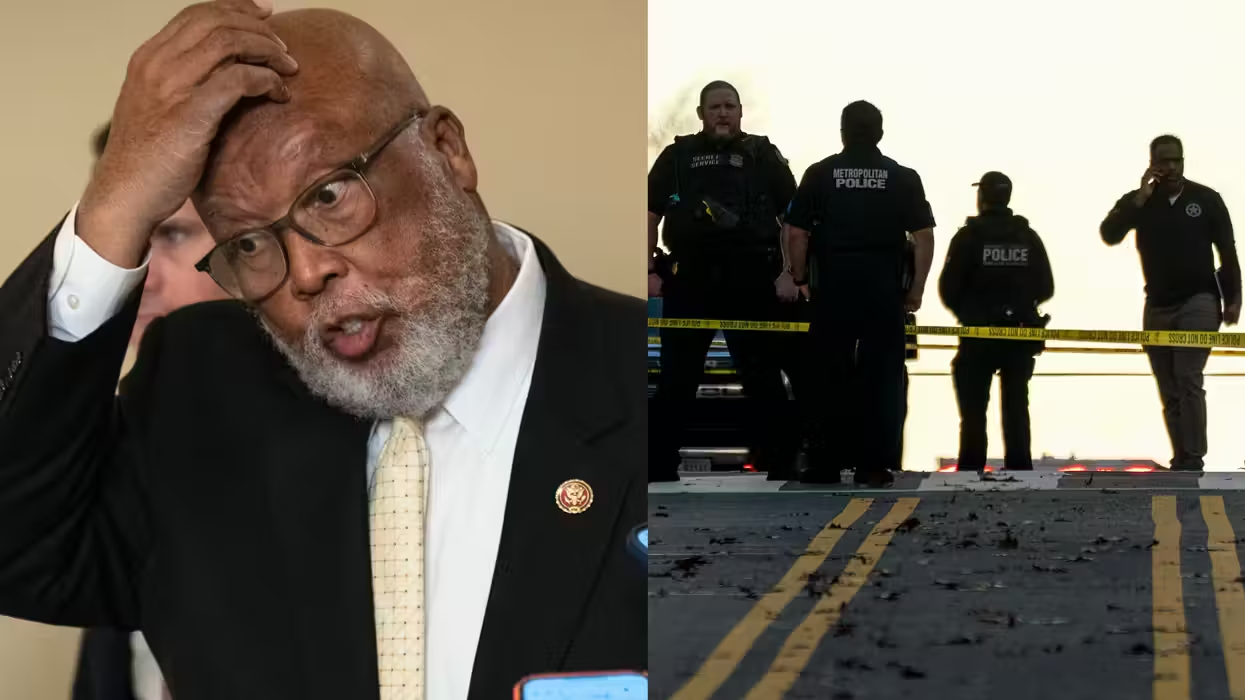
© 2025 Blaze Media LLC. All rights reserved.
 U.S. President Barack Obama arrives in the briefing room where he said he was 'modestly optimistic' while making a statement on fiscal cliff negotiations following a meeting with Congressional leaders at the White House December 28, 2012 in Washington, DC. (Photo: Getty Images)
U.S. President Barack Obama arrives in the briefing room where he said he was 'modestly optimistic' while making a statement on fiscal cliff negotiations following a meeting with Congressional leaders at the White House December 28, 2012 in Washington, DC. (Photo: Getty Images)
(TheBlaze/AP) -- As everyone's attention is focused on the slew of taxes set to increase in 2013, President Barack Obama has quietly signed into law a five-year extension to the warrantless intercept program that monitors the overseas activity of suspected spies and terrorists.
The program would have expired at the end of 2012 without the president's approval, but won final passage in the Senate on Friday before heading to the president's desk over the weekend.
Known as the Foreign Intelligence Surveillance Act, the law allows the government to monitor overseas phone calls and emails without obtaining a court order for each intercept.
The law does not apply to Americans, but the administration has staunchly refused to reveal whether Americans were inadvertently spied upon, or whether they are using foreign intercepts as a "back door" to spy on American citizens.
CBS News elaborates:
The Senate majority rejected arguments from an unusual combination of Democratic liberals and ideological Republican conservatives, who sought to amend the bill to require the government to reveal statistics showing whether any Americans were swept up in the foreign intercepts. The attempt lost, with 52 votes against and 43 in favor.The Obama administration's intelligence community and leaders of the Senate's intelligence committee said the information should be classified and opposed the disclosure, repeating that it is illegal to target Americans without an order from a special U.S. surveillance court.
The group seeking more disclosures also sought - unsuccessfully - a determination by the government of whether any intelligence agency attempted to use information gained from foreigners to search for information on Americans without a warrant, referred to as "back-door" searches. The prohibition against targeting Americans without a warrant protects Americans wherever they are, in the United States or somewhere else. [Emphasis added]
Sen. Ron Wyden, a Democrat, is one member of Congress seeking more transparency in an effort to, in his words, "strike a balance between security and liberty."
"How many phone calls to and from Americans have been swept up in this authority?" he asked.
When Americans are targeted for surveillance, the government must get a warrant from a special 11-judge court of U.S. district judges appointed by the Supreme Court.
--
Related:
Want to leave a tip?
We answer to you. Help keep our content free of advertisers and big tech censorship by leaving a tip today.
Want to join the conversation?
Already a subscriber?
more stories
Sign up for the Blaze newsletter
By signing up, you agree to our Privacy Policy and Terms of Use, and agree to receive content that may sometimes include advertisements. You may opt out at any time.
Related Content
© 2025 Blaze Media LLC. All rights reserved.
Get the stories that matter most delivered directly to your inbox.
By signing up, you agree to our Privacy Policy and Terms of Use, and agree to receive content that may sometimes include advertisements. You may opt out at any time.






